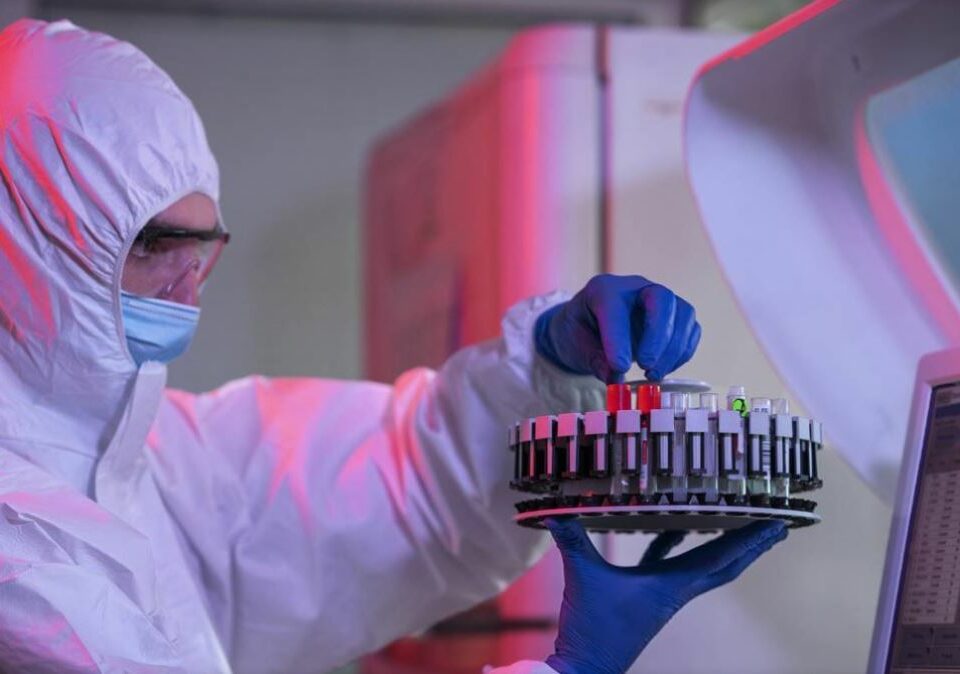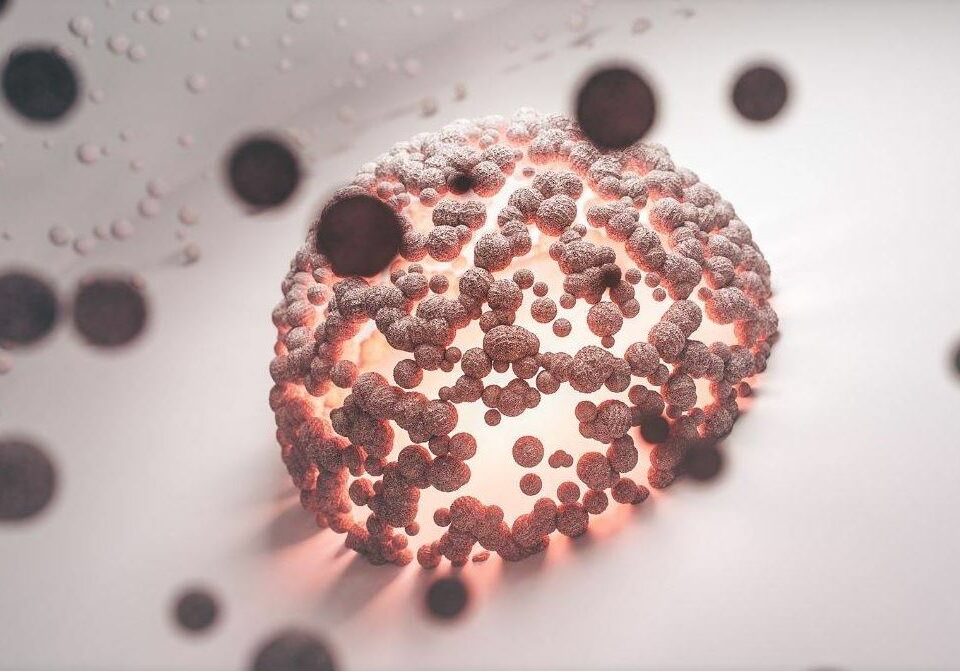Clinical trial succeeds in eliminating cancer in all participants

For the first time in the history of medicine a drug completely kills all patients’ tumours
/cloudfront-eu-central-1.images.arcpublishing.com/larazon/7P4GD4FYYNA3DP343JQRIH2VA4.jpg)
Source: www.larazon.es
It’s called dostarlimab, it’s an experimental cancer drug, and it may be the beginning of a new era in the history of medicine. A clinical trial with the drug has successfully eliminated cancer in all 18 participants. This is the first time in history that this has been achieved. The drug was given at Memorial Sloan Kettering Cancer Center (MSKCC) in New York to 18 people with colon cancer every three weeks for six months. The results were astonishing: the cancer disappeared, undetectable on physical exams, endoscopies, CT scans and MRIs.
Luis A. Diaz, who led the study, published the results in the New England Journal of Medicine, said he knew of no other study in which a treatment completely eliminated a cancer in all patients. “I think this is the first time this has ever happened in the history of cancer,” Diaz was quoted as saying in The New York Times. Alan P. Venook, a colorectal cancer specialist at the University of California, San Francisco, called the result “unprecedented”.
The sample is too small to draw any conclusions, but these 18 people have had their lives changed. When they were selected for the GlaxoSmithKline clinical trial, it was clear to all of them that no matter how well things went, they would inevitably have to undergo chemotherapy, radiotherapy and even surgery, which could lead to bowel, urinary and sexual dysfunction and, in some cases, the need for a colostomy bag.
But nothing could be further from the truth. When they underwent tests to see if the drug had been effective, they were surprised to find that the tumours had disappeared, so they would not need any further treatment.
“There were a lot of happy tears,” said Andrea Cercek, an oncologist at Memorial Sloan Kettering Cancer Center and co-author of the paper, which was presented Sunday at the annual meeting of the American Society of Clinical Oncology.
Dostarlimab is a drug known as a checkpoint inhibitor that unmasks cancer cells, allowing the immune system to identify and destroy them. Patients received one dose every three weeks for six months. Each dose cost around $11,000 (just over 10,000 euros), bringing the total treatment to around 100,000 euros.
Another encouraging aspect is that none of the patients had any side effects. While most adverse reactions are easily managed, three to five percent of patients taking checkpoint inhibitors have more serious complications, in some cases resulting in muscle weakness and difficulty swallowing and chewing.
For Venook, the lack of significant side effects may have to do with “not treating enough patients or somehow these cancers are just different”.
Es muy importante concienciar sobre la prevención del #CáncerdeColon. El papel activo de la población es fundamental. El #cribado es el método más eficaz para la detección precoz y la reducción de su mortalidad e incidencia. https://t.co/muJjY424fu RT y que llegue a todos!? pic.twitter.com/gAeX7UR4e6
— Fundación Española del Aparato Digestivo (FEAD) (@saludigestivo) June 2, 2022
In an editorial accompanying the article, Hanna K. Sanoff, Ph. Sanoff, MD, of the Lineberger Comprehensive Cancer Center at the University of North Carolina, called the study “small but convincing”. However, she also clarified that it is still too early to tell whether patients are fully cured. “Very little is known about the length of time needed to determine whether a complete clinical response to dostarlimab equates to cure,” Sanoff said in his paper.
First clinical trials
Diaz conducted a clinical trial in 2017 with 86 people with metastatic cancer originating in various parts of the body, but all had in common a rare genetic mutation (it only affects 4 percent of people with cancer) that prevented cells from repairing the DNA damage caused by the disease.
/cloudfront-eu-central-1.images.arcpublishing.com/larazon/TLSWZMIWKVCZ5DF4Y7TV5QWGNE.webp)
Patients in that Merck-funded trial took a checkpoint inhibitor, pembrolizumab, for two years. This time, the outcome was good, with almost half of the patients who were able to live longer having their tumours shrink or stabilise disease progression. In 10 percent of cases, the tumours disappeared.
Given these results, both Cercek and Diaz wondered what would happen if the drug was used before the cancer spread, and decided to launch a clinical trial in patients with colon cancer that may have spread to the lymph nodes but did not spread to other organs. Cercek knew that chemotherapy was not helping patients with the same mutations as those in the 2017 trial. In fact, instead of shrinking during treatment, their rectal tumours grew.
So Cercek and Diaz thought immunotherapy with a checkpoint inhibitor might allow these patients to avoid chemotherapy, radiation and surgery. Now all that remained was to find a pharmaceutical company willing to invest in the study because they all thought their approach was too risky. Treating people who could be cured by traditional methods. If things went well, there would be no problem, but there was a risk that the drug would not work and the tumours would grow and spread to the point where they could no longer be treated.
Eventually, a small biotech company, Tesaro, agreed to sponsor the study. Soon after, GlaxoSmithKline bought Tesaro and the study went ahead. The first patient was 38-year-old Sascha Roth. In 2019, he was doing well but noticed some rectal bleeding. And he decided to have tests that would eventually determine he had cancer.
The call that saved her life
The standard procedure was to undergo one or more cycles of chemotherapy, which he was scheduled to undergo at Georgetown University, but a friend told him to see Dr. Philip Paty at Memorial Sloan Kettering before he started. Paty confirmed that his cancer had the mutation that made chemotherapy unlikely to work. He was also the perfect candidate to participate in the trial. His friend saved his life.
Roth was aware that the clinical trial was unlikely to cure her, so she made plans to move to New York to receive the cycles of radiotherapy, chemotherapy and where she would likely have to undergo surgery to have the tumour removed. She also planned to undergo ovarian transposition surgery, which involves moving the ovaries to another area of the body, in this case under the ribs, so that the radiation would not affect them and she would be able to have children in the future.
After the six months of treatment, he went to Dr. Cercek’s office: “We have studied your tests and there is no cancer. Two years have passed since the trial and there is still no trace of the disease.
Now, Sanoff’s team is preparing a larger study to learn more about how the drug works: “What I would really like to do is to do a larger trial where this drug is used in a much more diverse setting to understand what the actual response rate will be in all cases. At the moment we cannot say that the effectiveness is 100 percent because we have to see the response rate in all cases. If it also works, that is when we will be able to say 100 per cent success,” he said.





